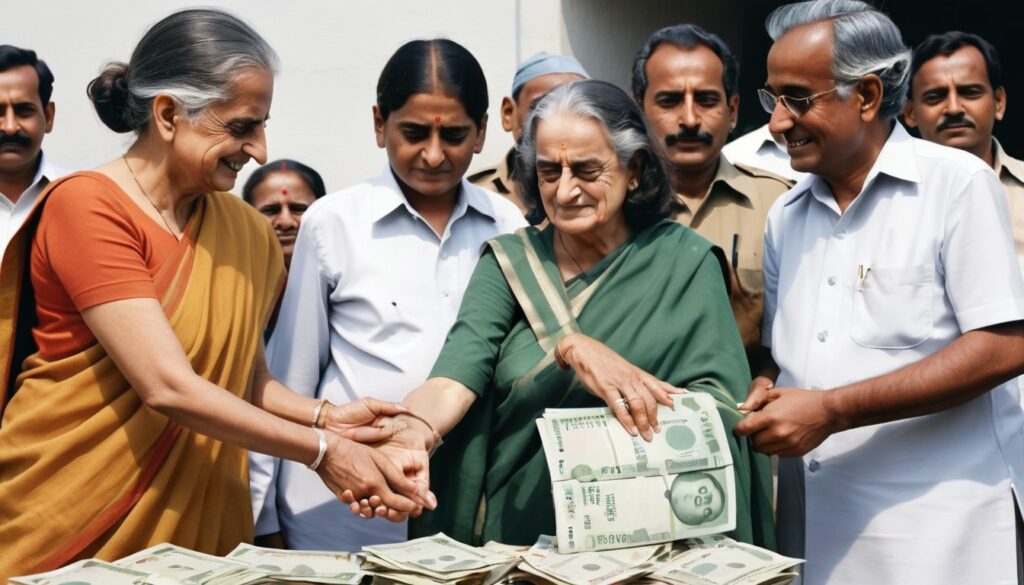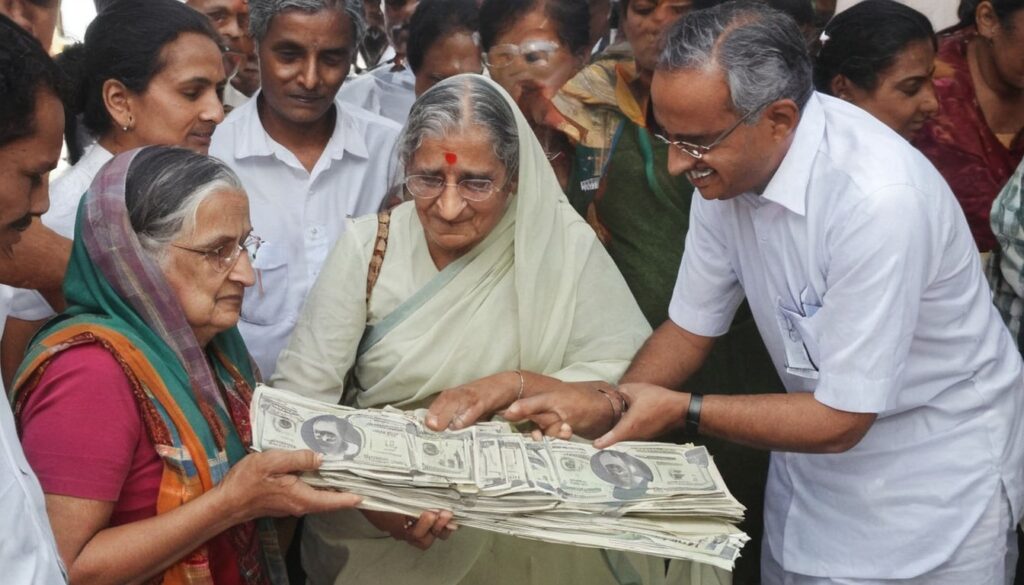
After losing a spouse, are you having financial difficulties? Find out who is eligible for the Indira Gandhi National Widow Pension Scheme.
It can be a terrible experience to lose a spouse, leaving both financial and emotional debt. Aiming to relieve some of the financial burden on widows in India, especially those from disadvantaged backgrounds, is the Indira Gandhi National Widow Pension Scheme (IGNWPS). This government-sponsored program gives qualifying widows a monthly stipend, providing a much-needed source of financial stability.
About Indira Gandhi National Widow Pension Scheme
The Indian government’s Ministry of Rural Development oversees the implementation of the Indira Gandhi National Widow Pension Scheme (IGNWPS). Widows of low-income families (BPL) in the community are eligible for social security benefits under this non-contributory pension plan.
Benefits of Indira Gandhi National Widow Pension Scheme

A pension of Rs.300/- per month is provided to Widows between 40 years and 79 years. For persons who are 80 years and above the pension is Rs.500/- per month.
Eligibility
The following are the requirements for eligibility under the Indira Gandhi National Widow Pension Scheme (IGNWPS):
- the applicant must be a widow between the ages of 40 and 79.
- The candidate must meet the requirements set forth by the Indian government and come from a household that does not exceed the poverty level.
Exclusions
Pension plans will be abandoned
- If a widow marries again,
- When the widow surpasses the poverty level
Application Process
Online
- The UMANG App can be downloaded, or the website https://web.umang.gov.in/web_new/home can be visited.
- The citizen can log in with their OTP and mobile number.
- Citizens can search for NSAP after logging in.
- Select “Apply Online.”
- Complete the required fields, select the pension payment method, attach a photo, and press “Submit.”
OffLine
- Depending on their eligibility, people can submit fully completed applications to the Municipality / Municipal Council in an urban location and the Gram Panchayat / Block Office in a rural area.
- Applications are verified using eligibility-related data by a Verification Officer or Verification Team working under an authorized officer.
- The Verification Officer provides the required recommendation for approval or denial along with a justification.
- The list of applicants and the Verifying Authority’s recommendations are reviewed in the Gram Sabha in rural areas, or in the Ward or Area Sabha in urban areas as decided by the State Government, and then in the Gram Panchayats and Municipalities.
- The Verification Officer directly submits his recommendations to the Sanctioning Authority after notifying the Gram Panchayat / Municipality if the deadlines are not met by Gram Sabha / Ward Sabhas, Gram Panchayats / Municipalities.
- The Sanctioning Authority notifies the applicant of their approval in the form of a Sanction Order and sends a copy to the relevant Gram Panchayat or Municipality upon receipt of applications that have been verified and supported by the Gram Sabha, Ward Committee, or Area Sabha.
- Under his seal, the Sanctioning Authority issues Sanction Orders.
- Each recipient who has received approval for a pension under an NSAP program is given a Pension Passbook. The Passbook includes information about the Sanction Order, the pensioner’s details, and the circumstances of the disbursement.
- Every three months, the list of beneficiaries who have received penalties is updated and exhibited at the Gram Panchayat, Ward, or Municipal Office.
- Through the Direct Benefit Transfer (DBT) method, the beneficiaries get the pension amount directly in their bank account or post office.
Required Documents:
- Husband’s Death Certificate (with the widow’s name on it) and
- BPL Card.
- Age Proof: You can rely on your birth certificate or school certificate to confirm your age. In their absence, EPIC and ration cards could be taken into account. Any medical officer working in a government hospital may be able to provide an age certificate in the absence of a legal document.
FAQs
What happens if my salary just barely surpasses the BPL threshold?
The state may determine different requirements for eligibility. Certain states may provide payments to widows who earn more than the federal poverty level, subject to certain income restrictions. For clarification, it is preferable to contact the Social Welfare Department in your state.
If I remarry and then become a widow again, may I reapply for the pension?
Unfortunately, widows who remarry are no longer qualified to receive benefits from the IGNWPS.
After applying, how long does it take to get the pension?
Processing times can change based on workload and condition. It is advised that you inquire about any updates regarding your application from the relevant department.
Where can I find assistance with submitting an application?
Local Social Welfare Departments, gram panchayats (village councils), and anganwadi personnel are all good places to ask for help.
Conclusion
An excellent program that gives poor widows in India financial help is the Indira Gandhi National Widow Pension Scheme. Even while the sum might not be sufficient to cover every financial hardship, it does provide assistance when needed. Check to discover if you qualify for the IGNWPS if you’re a widow experiencing financial hardship. This plan may offer you the much-needed financial stability you require as you work to put your life back together.
SourcesLinks
IGNWPS Office Memorandum Dated 08th Nov 2012
IGNWPS Office Memorandum Dated 30th Jun 2011
IGNWPS Office Memorandum Dated 30th Sep 2009
Read More: homes for intellectually impaired persons
